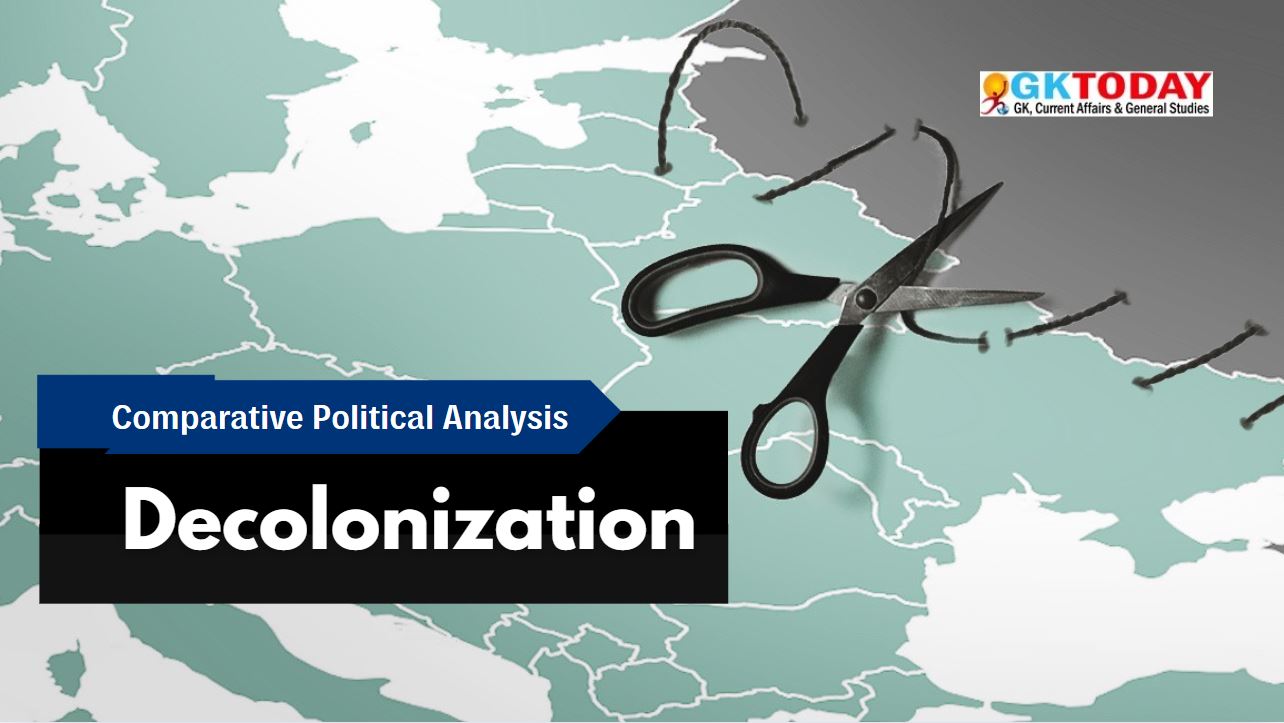Decolonization in Political Science [UGC-NTA Net Political Science]
Decolonization is a critical process in political science, marking the transition from colonial rule to self-governance. This phenomenon gained momentum after World War II, leading to changes in the political landscape of many nations.
Definition of Decolonization
Decolonization refers to the process of dismantling colonial rule. It involves the restoration of sovereignty to colonised nations. This process encompasses political, economic, and cultural dimensions. Political decolonization often includes the establishment of independent governments. Economically, it involves regaining control over resources and trade. Culturally, it seeks to revive indigenous traditions and languages.
Historical Context
Decolonization gained traction in the post-World War II era. The war weakened European powers, making it difficult for them to maintain colonies. Nationalist movements emerged in colonised countries, advocating for independence. The Cold War further influenced these movements, as both the United States and the Soviet Union sought to expand their spheres of influence. Many newly independent nations aligned with one of the superpowers for support.
Key Phases of Decolonization
Decolonization occurred in distinct phases:
- Early 20th Century: Initial movements began in Asia and Africa. Leaders like Sun Yat-sen in China and the Indian National Congress began to advocate for self-rule.
- Post-1945: The acceleration of decolonization took place, particularly in Africa and Asia. The United Nations played a role in supporting independence movements.
- 1960s: Known as the “Year of Africa,” 17 African nations gained independence, including Nigeria and Senegal.
Major Theories of Decolonization
Several theories explain the dynamics of decolonization:
- Modernization Theory: This theory posits that societies evolve from traditional to modern states. It suggests that development follows a linear path.
- Dependency Theory: It argues that colonialism created a dependency that hinders development. Colonised nations often remain economically reliant on former colonial powers.
- Postcolonial Theory: This focuses on the cultural and psychological impacts of colonialism. It examines how colonial histories shape identities and power dynamics.
Key Events and Milestones
Several very important events marked the decolonization era:
- India (1947): India was the first major Asian country to gain independence from British rule. This event set a precedent for other nations.
- African Independence Movements (1950s-1970s): Countries like Ghana (1957), Kenya (1963), and Algeria (1962) achieved independence through various means, including negotiations and armed struggle.
- Vietnam (1954): The Battle of Dien Bien Phu marked the end of French colonial rule in Vietnam, leading to the division of the country.
- Cuban Revolution (1959): This event was in Latin America, resulting in the establishment of a socialist state under Fidel Castro.
Prominent Leaders and Movements
Several leaders played crucial roles in decolonization:
- Mahatma Gandhi: He advocated for non-violent resistance in India, influencing global movements for civil rights.
- Kwame Nkrumah: As the leader of Ghana’s independence movement, he became the first president of Ghana, promoting pan-Africanism.
- Nelson Mandela: An anti-apartheid leader, Mandela fought against racial segregation in South Africa, eventually becoming its first black president.
- Ho Chi Minh: He led the Vietnamese independence movement against French colonial rule, advocating for communism.
Impact of Decolonization
Decolonization led to changes:
- Emergence of New Nation-States: Many countries gained independence, leading to the formation of new national identities.
- Economic Challenges: Newly independent states faced economic difficulties, often exacerbated by neocolonialism, where former colonial powers maintained economic influence.
- Social and Political Instability: Many nations experienced turmoil due to ethnic conflicts or power struggles post-independence.
- International Organisations: The rise of organisations like the United Nations advocated for self-determination and supported newly independent nations.
Case Studies
Several case studies illustrate the complexities of decolonization:
- India: The partition of India in 1947 led to violence and displacement, denoting the challenges of decolonization.
- Algeria: The violent struggle against French colonial rule lasted from 1954 to 1962, resulting in a high human cost.
- Congo: Rapid decolonization in 1960 led to political turmoil and the assassination of its first prime minister, Patrice Lumumba.
- South Africa: The transition from apartheid to democracy in the 1990s marked achievement in the struggle for equality.
Contemporary Issues Related to Decolonization
Decolonization continues to influence modern discussions:
- Indigenous Rights: Many indigenous groups worldwide still fight for recognition and rights, seeking reparations for historical injustices.
- Reparations Debate: There are ongoing discussions about whether former colonial powers should provide reparations to colonised nations.
- Globalization: The role of globalization in post-colonial states raises questions about economic sovereignty and cultural identity.
Overall, decolonization remains a vital topic in political science, shaping the contemporary world. The legacies of colonialism continue to affect nations and their peoples, necessitating ongoing dialogue and action. About decolonization helps in grasping the complexities of modern international relations and the pursuit of justice and equality.






